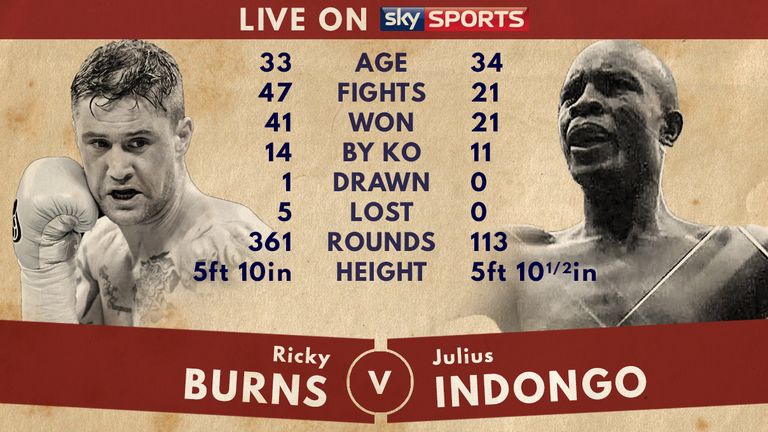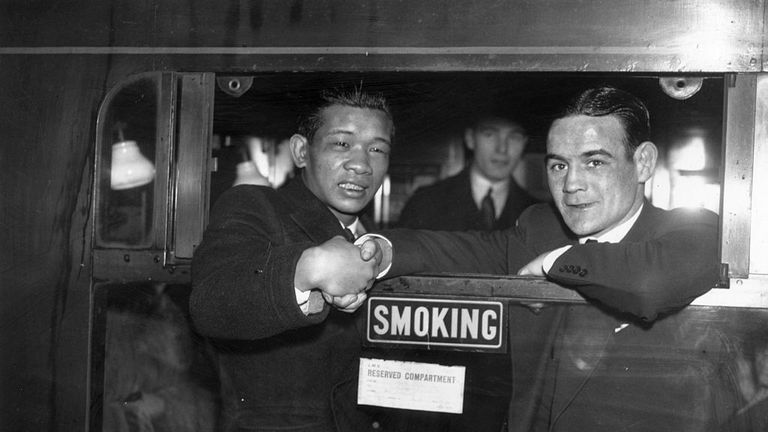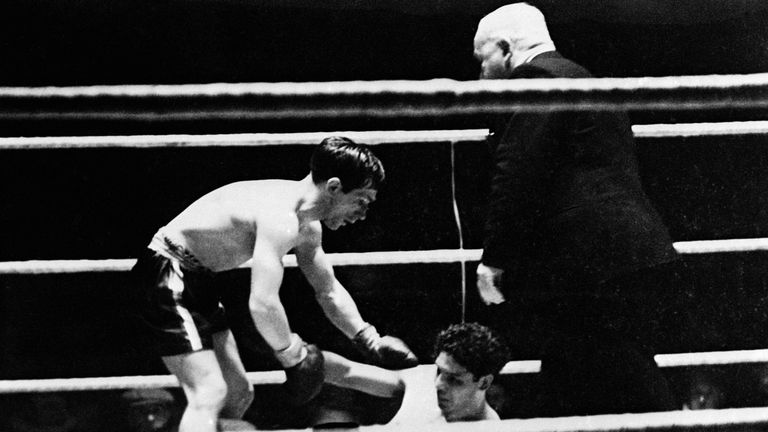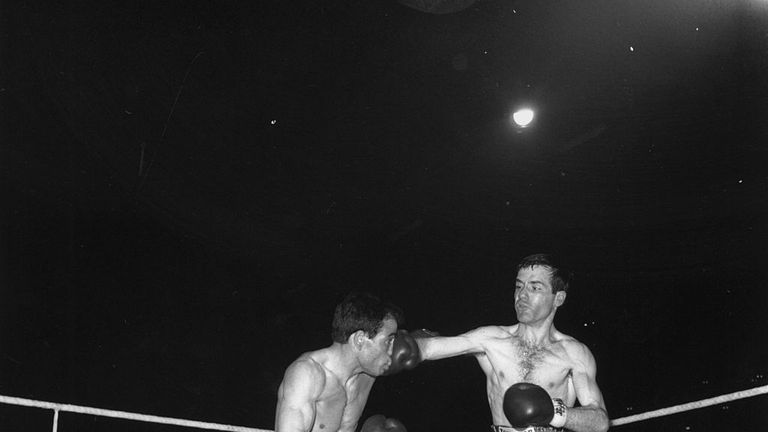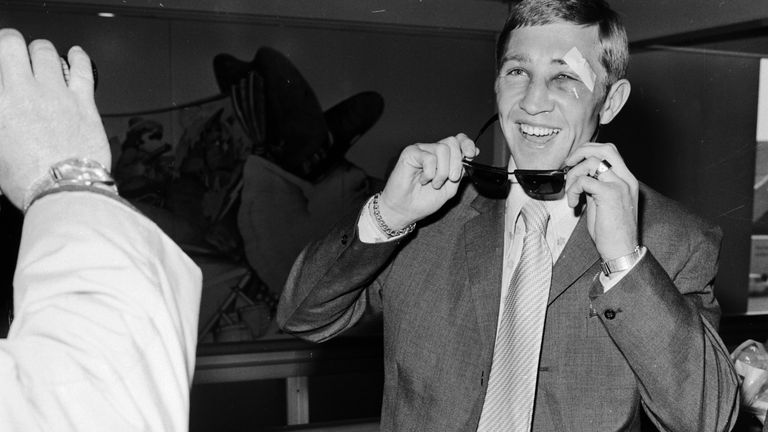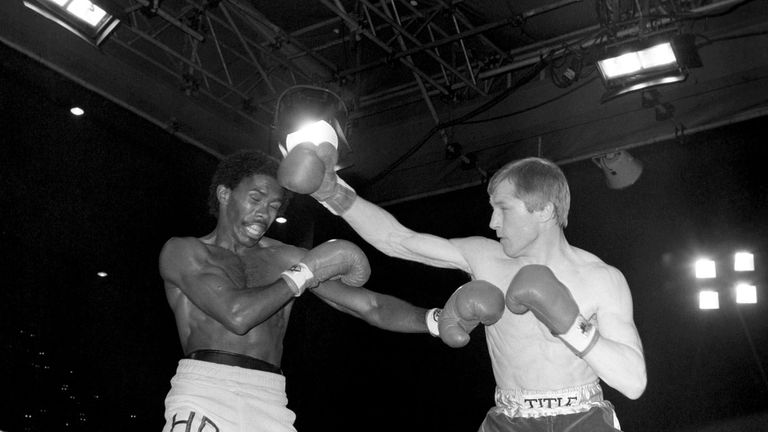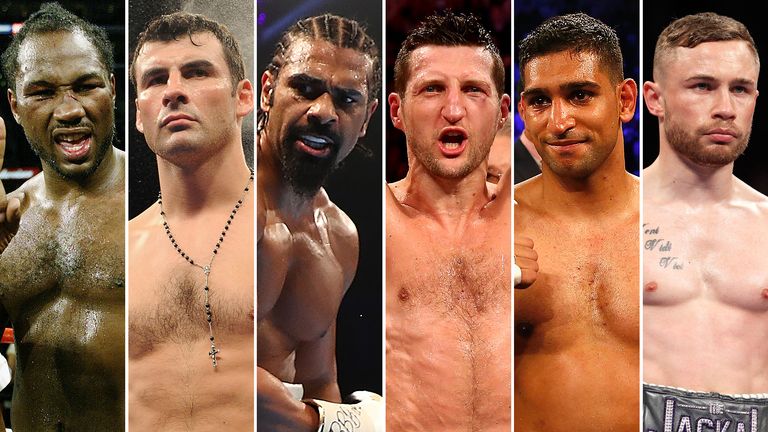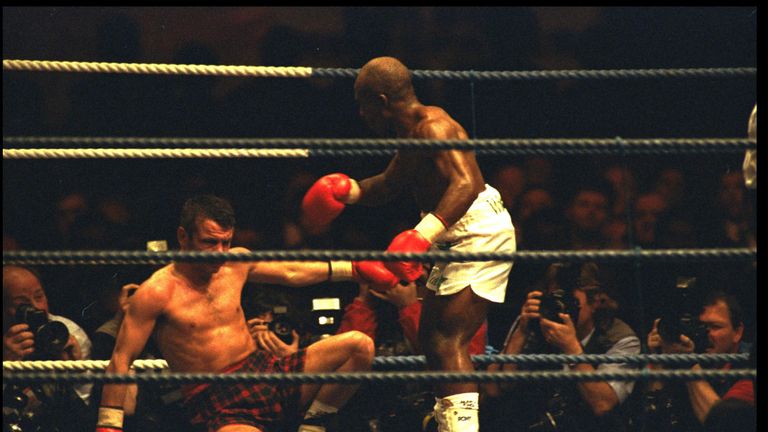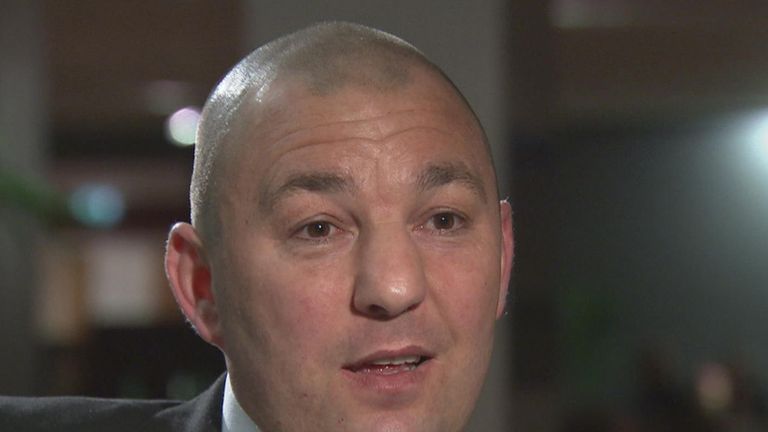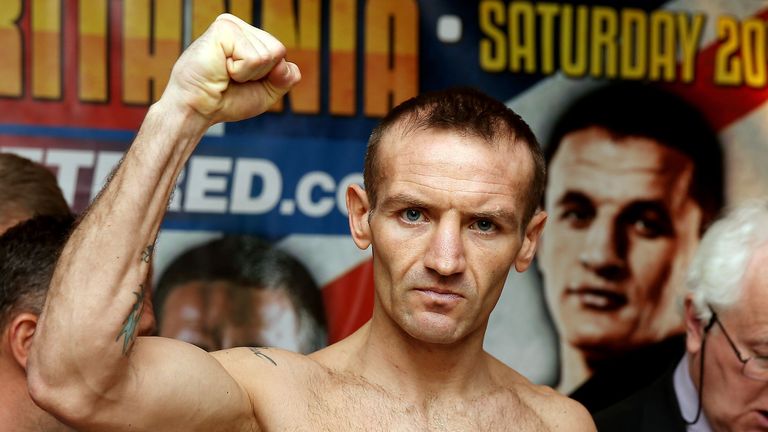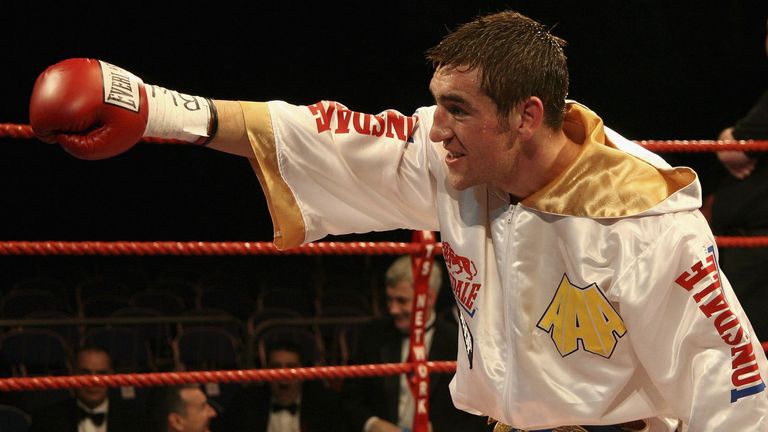Burns vs Indongo: How does Ricky Burns compare to Scotland’s other world champions?
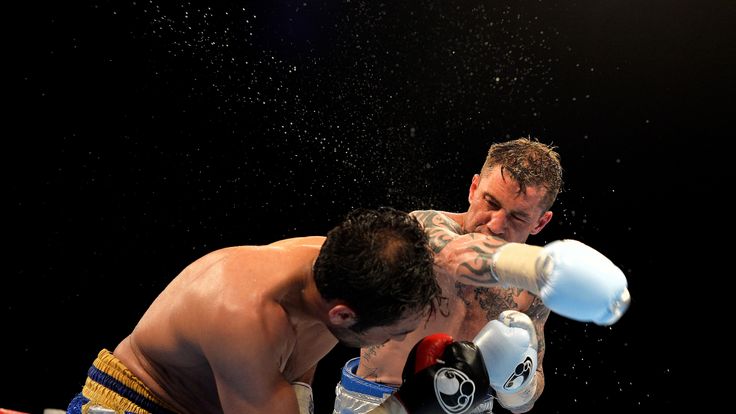
Friday 14 April 2017 12:39, UK
Ricky Burns fights Julius Indongo in Glasgow on Saturday, live on Sky Sports, in a unification clash in the super-lightweight division.
The top-of-the-bill clash at the SSE Hydro sees the Scotsman look to add the Namibian's IBF title to the WBA title he already holds.
The 'Rickster' is a three-weight world champion, but how does he compare to the other great Scots? Here we take a look back at Burns' fellow Scottish world champions.
James 'Tancy' Lee (41-10-2-KO27)
Lee turned professional at the age of 30 and beat Jimmy Wilde in 1915 to win the IBU world title, as well as the British and European belts.
The victory meant Tancy became the first Scottish man to be crowned British champion - and he went on to win another when stepping up to featherweight later in his career.
Johnny Hill (19-1-3-KO10)
In front of a packed crowd of 50,000 at the Clapton Stadium in London, Hill beat Newsboy Brown to win the vacant flyweight world title in 1928.
The fighter from Leith claimed the British and European straps from Ernie Jarvis the following year. However, shortly before he was due to face Frankie Genaro, Hill was struck down by pneumonia. He passed away at the age of 23.
Benny Lynch (88-14-17-KO34)
An undisputed flyweight world champion, Lynch is often referred to as Scotland's greatest ever boxer.
He won the British, European and world flyweight titles against Jackie Brown in 1935 before defeating Small Montana a year later in his defining night, as he was crowned the undisputed champion of the division. In 2002, The Ring Magazine named Lynch - who died at the age of 33 - the fifth greatest flyweight of all time.
Jackie Paterson (63-25-3-KO40)
A member of the RAF during World War II, Paterson continued to box while serving and won the vacant flyweight title at Hampden Park, knocking out Peter Kane inside a minute in 1943.
Paterson's victory meant he was the first southpaw to win a world title at flyweight. Known for his power, he also picked up the Commonwealth and British titles outright in a distinguished career.
Walter McGowan (32-7-1-KO14)
A talented all-round sportsman who could have pursued a career as a jockey, McGowan became the first Scottish world champion to be honoured in the Queen's birthday list with an MBE.
As a professional, McGowan beat Salvatore Burruni in 1966 to become the flyweight champion of the world, but lost his status as the number one in the division just six months later after losing to Chartchai Chionoi in Bangkok.
Ken Buchanan (61-8-KO27)
An ABA champion in the unpaid ranks, Buchanan travelled away from home to beat Ismael Laguna in the Puerto Rican heat to claim the lightweight world title in 1970.
Buchanan defeated Ruben Navarro to unify the division a year later, only to lose in controversial fashion to Roberto Duran in 1972. The fight at Madison Square Garden was stopped after the champion appeared to be hit by a low blow after the 13th round, yet the referee judged the punch to be legal.
Jim Watt (38-8-KO27)
The voice of Sky Sports for many years, Watt became WBC lightweight world champion in 1979 after knocking out Alfredo Pitalua.
The talented southpaw made four successful defences of his belt before succumbing to Alexis Arguello in 1981. He never fought again after coming out on the wrong end of a points decision.
Murray Sutherland (47-14-1-KO39)
By defeating Ernie Singletary to capture the vacant IBF strap in 1984, super-middleweight Sutherland became world champion at the third attempt.
Once ranked number one in the world by the Professional Karate Association, the Edinburgh-based fighter - who also shared a ring with Thomas Hearns and Michael Spinks (twice) - lost the belt in his first defence.
Pat Clinton (20-3-KO9)
Clinton represented Great Britain at flyweight in the 1984 Olympics before turning professional a year later. A run of 13 straight wins then followed but a failed European title attempt threatened to derail his progress.
However, he regrouped and realised his dream of becoming world champion by beating Isidro Perez in 1992 via split decision, becoming the new WBO flyweight champion in the process.
Paul Weir (14-6-KO4)
An elite amateur, Weir knocked out Fernando Martinez to win the vacant WBO minimumweight title in only his sixth professional contest in 1993.
A year later, Weir became a two-weight king after defeating Paul Oulden to win the same organisation's light-flyweight belt. Upon retirement, he stayed within the sport by embarking on a career as a trainer.
Scott Harrison (27-3-2-KO15)
Despite losing his fourth professional contest, Harrison ended his career as a two-time featherweight champion of the world.
'The Real McCoy' won the interim WBO belt against Victor Santiago in 2002 before ripping the full version of the title off Julio Pablo Chacon in his next outing. Despite a knockout loss to Manuel Medina in his second defence, Harrison regained the crown by beating the same opponent in a rematch.
Alex Arthur (31-3-21KO)
A former British, Commonwealth, European and WBO super-featherweight world champion, Arthur will forever be known for his five-round war with Michael Gomez in 2003.
In 2006, he beat Ricky Burns via unanimous decision to earn a shot at the interim WBO belt, which he won against Stephen Foster. Amazing Alex was eventually upgraded to full champion status, but a loss to Nicky Cook ended his reign in 2008.
Watch Ricky Burns vs Julius Indongo from the SSE Hydro, Glasgow, on Saturday night, live on Sky Sports 2 from 7.30pm.
Sky customers can now upgrade to Sky Sports and get 12 months for just £18 per month. Upgrade now!



